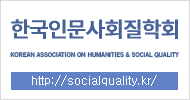ISSN : 2586-2987(Print)
ISSN : (Online)
ISSN : (Online)
Korean Journal of Social Quality Vol.7 No.4 pp.47-74
DOI : https://doi.org/10.29398/KJSQ.2023.7.4.47
DOI : https://doi.org/10.29398/KJSQ.2023.7.4.47
A Study on the Constitutional Implications of Democratic Backsliding
Abstract
This paper was written with the research purpose of ‘considering academic discussions and domestic and international realities related to democratic backsliding, and summarizing implications for the interpretation, specification, and revision of the Constitution of Korea.’ According to Nancy Bermeo, democratic backsliding means “the state-led weakening or elimination of the political system that supports existing democracy.” Types of democratic backsliding today include ‘promissory coup,’ ‘executive aggrandizement,’ and ‘manipulating elections strategically.’ Today, some causes for democratic backsliding include political polarization, structural characteristics of new media and attempts to manipulate it, and vulnerable legislatures. Many agree that the crisis of democracy is emerging in Korea as well. In order to prevent this, certain measures are needed and some of them are as follows: First, constitutional interpretation must solidify liberal democracy, which is the interpretation of the basic principle of the Constitution. Second, in terms of specifying the Constitution, the National Assembly must prepare comprehensive and proactive measures to prevent democratic regression. Third, the Constitutional Court must strive to comply with ‘functional legal limits’ to prevent it from being abused as a means of reversing democracy. Fourth and lastly, we must also pay attention to constitutional revision as it could turn into either a crucial opportunity or a trophy for the regression of democracy.









